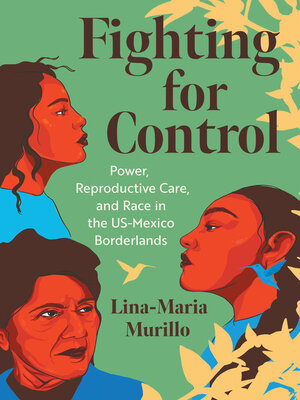Fighting for Control
ebook ∣ Power, Reproductive Care, and Race in the US-Mexico Borderlands · Justice, Power, and Politics
By Lina-Maria Murillo

Sign up to save your library
With an OverDrive account, you can save your favorite libraries for at-a-glance information about availability. Find out more about OverDrive accounts.
Find this title in Libby, the library reading app by OverDrive.



Search for a digital library with this title
Title found at these libraries:
| Library Name | Distance |
|---|---|
| Loading... |
The first birth control clinic in El Paso, Texas, opened in 1937. Since then, Mexican-origin women living in the border cities of El Paso and Ciudad Juárez have confronted various interest groups determined to control their reproductive lives, including a heavily funded international population control campaign led by Planned Parenthood Federation of America as well as the Catholic Church and Mexican American activists. Uncovering nearly one hundred years of struggle, Lina-Maria Murillo reveals how Mexican-origin women on both sides of the border fought to reclaim autonomy and care for themselves and their communities.
Faced with a family planning movement steeped in eugenic ideology, working-class Mexican-origin women strategically demanded additional health services and then formed their own clinics to provide care on their own terms. Along the way, they developed what Murillo calls reproductive care— quotidian acts of community solidarity—as activists organized for better housing, education, wages, as well as access to birth control, abortion, and more. Centering the agency of these women and communities, Murillo lays bare Mexican-origin women’s long battle for human dignity and power in the borderlands as reproductive freedom in Texas once again hangs in the balance.
Faced with a family planning movement steeped in eugenic ideology, working-class Mexican-origin women strategically demanded additional health services and then formed their own clinics to provide care on their own terms. Along the way, they developed what Murillo calls reproductive care— quotidian acts of community solidarity—as activists organized for better housing, education, wages, as well as access to birth control, abortion, and more. Centering the agency of these women and communities, Murillo lays bare Mexican-origin women’s long battle for human dignity and power in the borderlands as reproductive freedom in Texas once again hangs in the balance.







